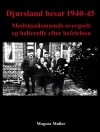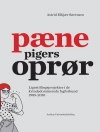An intellectual and cultural history of mid-twentieth century plans for European integration, this book calls into question the usual pre- and post-war periodizations that have structured approaches to twentieth-century European history. It focuses not simply on the ideas of leading politicians but analyses debates about Europe in “civil society” and the party-political sphere in Germany, asking if, and how, a “permissive consensus” was formed around the issue of integration. Taking Germany as its case study, the book offers context to the post-war debates, analysing the continuities that existed between interwar and post-war plans for European integration. It draws attention to the abiding scepticism of democracy displayed by many advocates of integration, indeed suggesting that groups across the ideological spectrum converged around support for European integration as a way of constraining the practice of democracy within nation-states.
Table des matières
Acknowledgements
Abbreviations
Introduction
Chapter 1. Making the Case for Europe: Transnational Organizations and Cultural Journals
Chapter 2. The defence of Europe in Merkur: Deutsche Zeitschrift für Europäisches Denken
Chapter 3. The Internationaler Sozialistischer Kampfbund: From World Revolution to European Federalism
Chapter 4. The Rise and Fall of a Socialist Europe: The ISK and the SPD in Opposition
Chapter 5. An island surrounded by land: Das Demokratische Deutschland in Switzerland
Chapter 6. ‘Europe our Fatherland, Bavaria our Heimat!’ Das Demokratische Deutschland and the Post-War Trajectories of European Federalism
Conclusions
Bibliography
A propos de l’auteur
Christian Bailey is Assistant Professor of History at Purchase College, State University of New York. After having completed his Ph D at Yale University, he was appointed Max Kade Fellow at the Free University in Berlin and has worked as a postdoctoral researcher at the History of Emotions Research Center in the Max Planck Institute for Human Development, Berlin.












